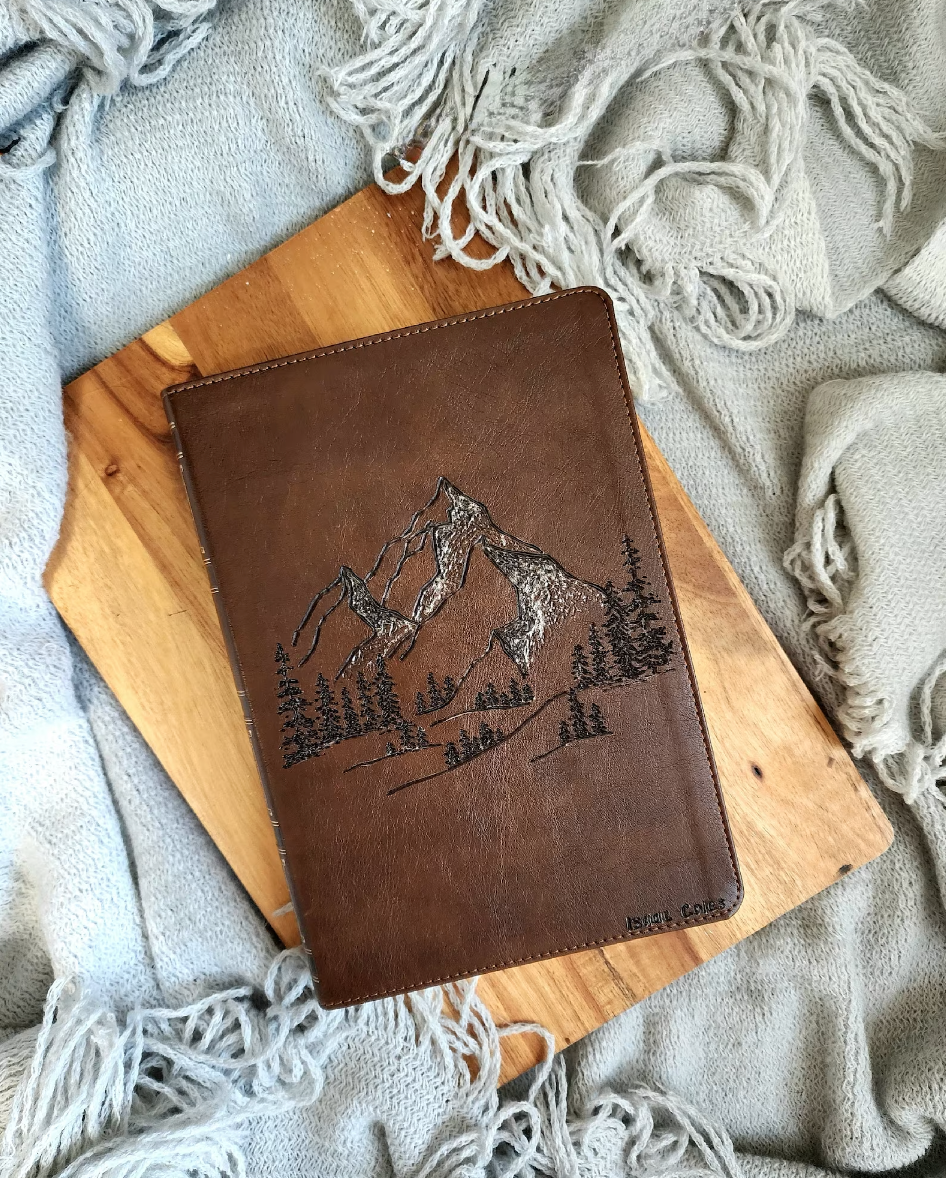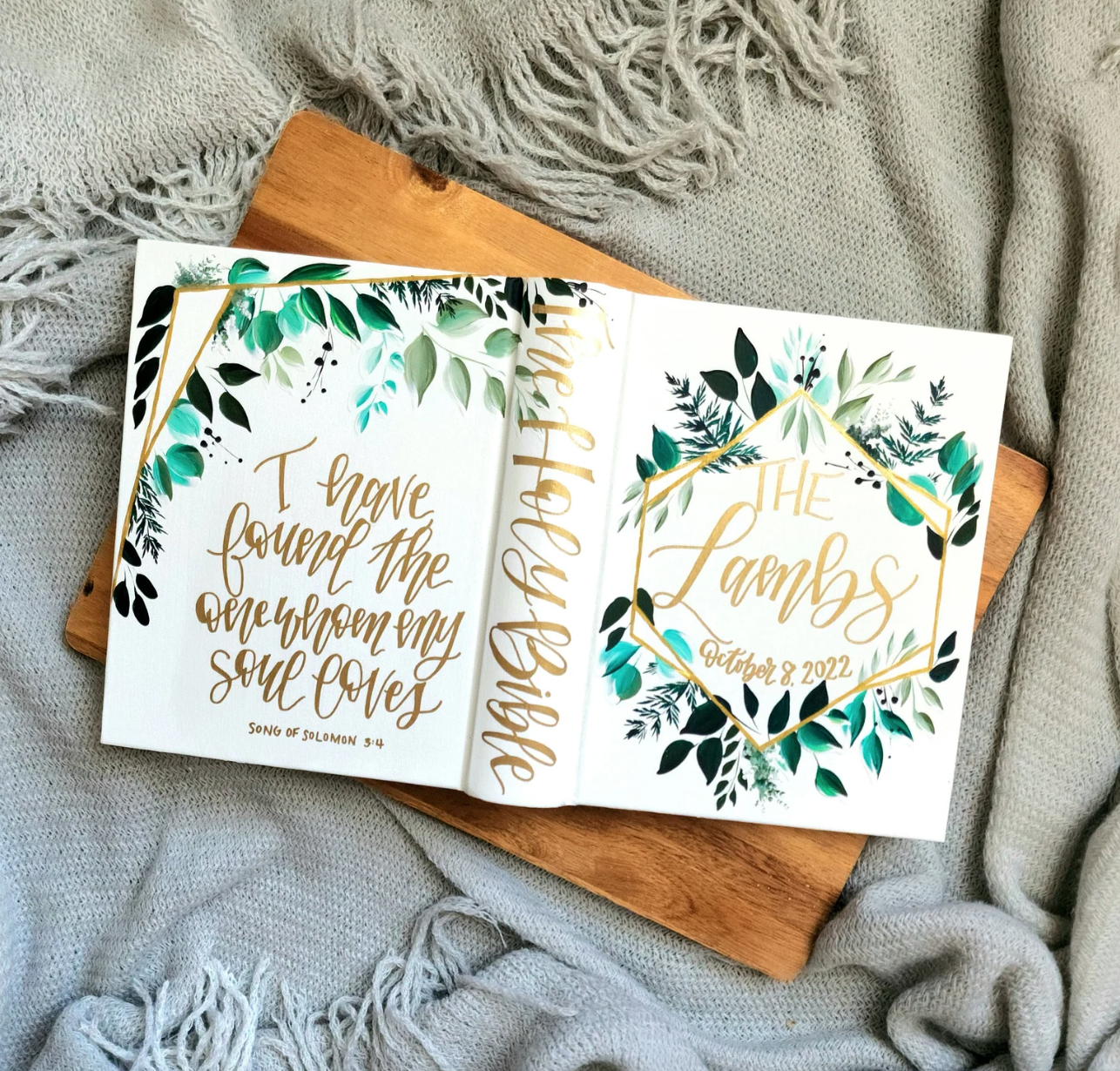How to Use Your Journaling Bible
/So you bought a journaling Bible. Now what?
There are so many beautiful Bibles out there, whether painted or not, but what we need to be enticed by is what sits inside that precious shell. That's the hard part, though, and often we can give up before we even start because we are intimidated. It could be from the thousands of pages, or maybe its the loads of highlighting, underlining, and beautiful writing that we see by people on Instagram or Pinterest.
But please don't let that stop you! The fact that you want to learn and use your Bible is amazing, and even the tiniest bit of reading can bring you so much closer to God and His word simply with intentionality.
But we've gathered a little bit of help today from one of the sweetest sources on studying your Bible. Jordan Lee, the creator of Soul Scripts, created a list of 9 tips and tools that will help you dig into your Bible and get the most from God's word.
So here we go!
1. Check Your Heart and Mindset
Basically, make sure you're not just doing it because it's popular or because your Bible looks pretty all marked up.
If you truly want to learn more about God's word and how you can grow from it, then you are doing exactly the right thing. Make sure the focus is not on reading the Bible because you have to or feel like you are supposed to, but rather because you want to for yourself. The rest is honestly a breeze once you have your heart in the right place.
2. Pick a Shorter Book of the Bible and Start in Chapter 1, Verse 1
Jordan says in her post that "There’s no 'perfect place' to start reading because it all ultimately works together and is part of God’s big story." That is maybe the biggest relief ever.
Don't worry about doing this perfectly. JUST DO IT.
As she says, though, don't just read one verse or jump around. The Bible is God's story book for us to learn from, and we cannot glean what we need to from random verses. Start either at the beginning of the Bible, or start in a book you might be interested in and start in the first chapter. Read through that whole chapter and see what you can understand from it.
The next day you can start with the next chapter and so on until you finish that particular book of the Bible. This method gives you focus and a place to go to each day so that you don't feel lost or overwhelmed, and best of all this helps you realize that you can do this!
3. Dig up a Common Household Pen and Highlighters
This one is pretty common sense, but basically don't feel like you have to have the most amazing tools to journal in your Bible. Our favorite highlighting tools are actually just colored pencils. You have a million options to choose from, and you don't have to worry about them bleeding through the page.
Pen wise, our absolute favorite journaling pens are Pigma Micron pens. There are loads of options, but you can choose whether you'd like straight black, different widths, or a myriad of colors. Our favorite is simply black, 005 width, and highlighting with my colored pencils, but figure out what works for you.
4. Get a Single Column Journaling Bible
These Bibles are absolutely perfect because they have space at the edges of each page that are great for making notes, writing down thoughts, adding in definitions, or referencing other verses or helpful words from devotionals.
We may be biased here, but the most fun journaling Bibles are perfectly customized to you, and we happen to paint some pretty cool custom Journaling Bible covers. You can check them out here!
5. Use Sticky Notes
Once you've been journaling for a little while, you may run over a passage that you already wrote on, so adding in sticky notes gives you unlimited space for new thoughts and notes. You often glean new things each time you read a verse or chapter, so this is perfect to record every piece that you learn.
6. Use Supplemental Resources
The Bible isn't the easiest book in the world, especially starting out, so don't get down if you feel unsure of what it's saying. We’ve linked some helpful websites below that have devotionals, books, and articles to help with you grow your understanding of the Bible and God. Tap the logos to check them out!
And those are just a few! We also love Today in the Word, so check some different ones out and see which one suits your learning style. Jordan also recommends using a study Bible and journaling Bible side by side to get the extra notes and commentary from the study Bible and have room to write down your thoughts and other notes in the journaling Bible.
7. Ask Questions and Write Down Your Answers
Jordan encourages us to ask: "What does this passage/verse teach me about God?” or, “How does this point to His ultimate plan of redemption through Christ?”
Writing down the answers to these questions helps us learn more about God's character and what He wants us to learn about each word and verse.
8. Write and Speak the Word
As Jordan points out, writing out God's word may just be the best way to memorize it and have those verses on our heart so that we can have them ready when we need them. While it may seem silly, simply writing a verse in the margins that stood out to you can be exactly what you need to see, and it is a great way to start journaling because it keeps the focus on God's word.
9. Pray
I can't say it better than she does, so here goes: "Prayer doesn’t have to look fancy or formal or un-smudged. God knows your heart. He will lead and guide it. Pray for His guidance. Pray for Him to reveal Himself to you and open your eyes to what He is teaching you about Himself. Pray for His presence, invite Him in, and for Him to write His Word on your heart."
Journaling helps us learn more about God, and praying to Him for guidance and truth helps reveal even more about His word and how he wants us to live our lives. Keep your journaling time open and conversational so that you are constantly learning and listening to the one who gives us everything :)



















